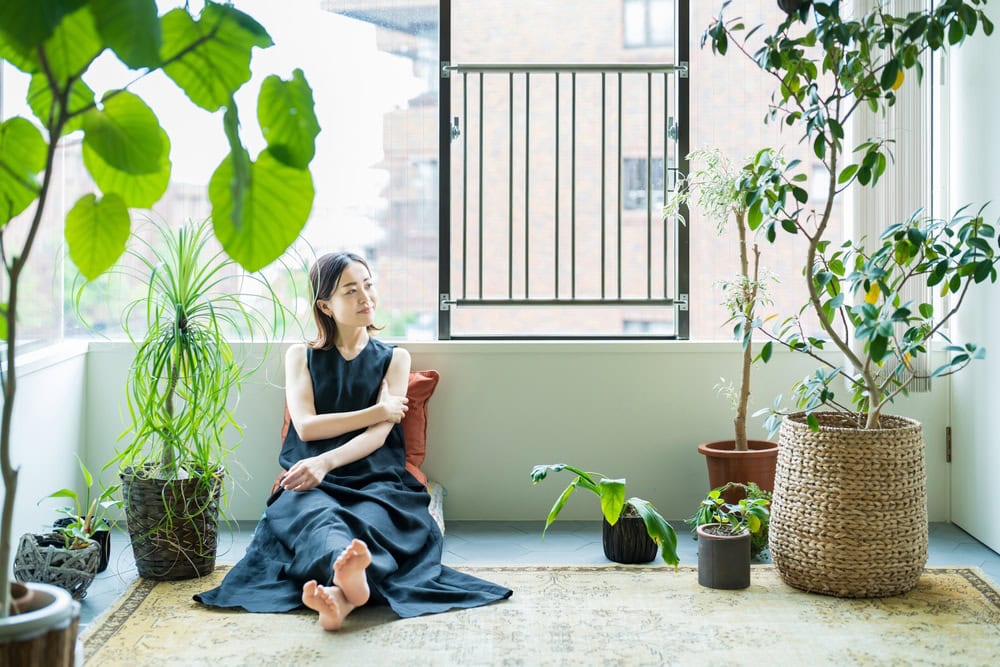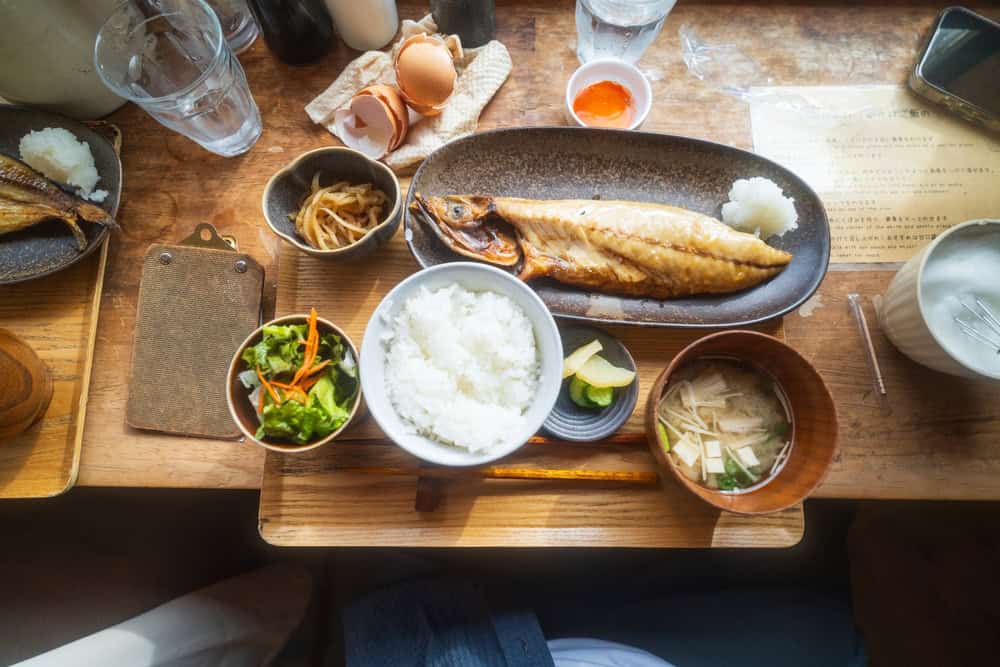
Japan is celebrated worldwide for its longevity, tight-knit communities, and ability to have a peaceful life and way of living. You might think these benefits come from spending money on wellness retreats and “superfoods”, but many of the Japanese practices that can help change your life are easily free.
These habits are also rooted in centuries of cultural traditions, emphasizing simplicity, mindfulness, respect for nature, and balance. These can build into your everyday life without costing you a thing.
Here are 15 free Japanese habits that can improve your physical health, mental focus, and emotional health.
1. Ikigai: “A reason to wake up”

Ikigai is a Japanese tradition that means “have a reason to be.” Ikigai is really about finding what you want to make your life meaningful. It could be a job, a hobby, or supporting others.
How to try it: Think about what gets you excited in the morning. How can you do your best to align your daily activities with that purpose?
2. Shinrin-yoku: Forest Bathing to Reduce Stress
 Shinrin-yoku, or forest bathing, means simply going to a forest and immersing yourself in nature, with no phones or rush, just being with trees.
Shinrin-yoku, or forest bathing, means simply going to a forest and immersing yourself in nature, with no phones or rush, just being with trees.
Benefits: reduced stress hormones, lifted moods, and increased immunity.
How to give it a try: Go to a park or nature trails, and spend 20–30 minutes walking & engage with your senses.
3. Hara Hachi Bu: Eat Until You are 80% Full
 This habit allows you to eat without being too mindful, which helps prevent you from overeating. It keeps you in a healthy weight range.
This habit allows you to eat without being too mindful, which helps prevent you from overeating. It keeps you in a healthy weight range.
How to give it a try: Pause during your meal and ask yourself if you are still hungry.
4. Asa Geiko: Morning Practice to Help You Be More Productive
 For many Japanese people, they will spend their early mornings dedicated to looking after their bodies, learning, exercising, or meditating.
For many Japanese people, they will spend their early mornings dedicated to looking after their bodies, learning, exercising, or meditating.
How to give it a try: Wake up 30 minutes earlier than you normally do, and dedicate that time to something that encourages your personal growth.
5. Chanto Suru: Doing things right the first time
 This cultural custom focuses on honoring a task. No matter how small or big it is, they do it with 100% of their attention.
This cultural custom focuses on honoring a task. No matter how small or big it is, they do it with 100% of their attention.
How to try it: Even while washing the dishes or completing a work email, do it with focus and care.
6. Teinei na Seikatsu: Being polite and present

It’s the little things, really; bowing when you meet someone or thanking someone for holding the door all indicate respect and consideration for your fellow human.
How to try it: Focus on little ways you can show gratitude or consideration to those around you daily.
7. Kakeibo: Being mindful of your money
 Kakeibo is an old budgeting method that helps Japanese people consider their purchases before they make them.
Kakeibo is an old budgeting method that helps Japanese people consider their purchases before they make them.
How to try it: For every purchase, ask yourself, Do I need this? Will I be happier if I buy this?
8. Nemawashi: Preparing the ground to smooth the way for change
 In Japan, important decisions are made by first having informal discussions about proposals, which enables groups to reach consensus or avoid conflict.
In Japan, important decisions are made by first having informal discussions about proposals, which enables groups to reach consensus or avoid conflict.
How to try it: Prior to making any changes at work and home, speak with people privately so you may win their support.
9. Wabi-Sabi: Accepting imperfection
 Wabi-sabi is a way of looking at the world by celebrating the beauty found in imperfection.
Wabi-sabi is a way of looking at the world by celebrating the beauty found in imperfection.
How to try it: Try to stop feeling a panic over imperfections – embrace them, they are part of your story.
10. Gaman: Patience and endurance

Japanese culture is known for valuing quiet endurance and patience through tough times, with very little complaining.
How to try it: Next time you feel discomfort or face a challenge, try not to panic or complain.
11. Asa Shokudo: A Balanced Breakfast for Energy
 A traditional Japanese breakfast includes rice (the staple food), miso soup, vegetables, and fish. It is a light yet nourishing meal to start the day.
A traditional Japanese breakfast includes rice (the staple food), miso soup, vegetables, and fish. It is a light yet nourishing meal to start the day.
How to try it: Even if you cannot replicate this exactly, choose a balanced whole-food breakfast.
12. Ma: Open Space for Clarity
 Ma is the art of leaving space. This applies to scheduling and the environment around you. A life filled with too many commitments or possessions can feel confusing or frustrating.
Ma is the art of leaving space. This applies to scheduling and the environment around you. A life filled with too many commitments or possessions can feel confusing or frustrating.
How to try it: Don’t fill every moment of your day. Allow for pauses and moments of silence to be a part of life.
13. Kansha: Gratefulness Every Day
 The concept of gratefulness is profoundly embedded in Japanese culture, from thanking the chef after a meal to respecting nature on a walk.
The concept of gratefulness is profoundly embedded in Japanese culture, from thanking the chef after a meal to respecting nature on a walk.
How to try it: Keep a daily gratitude journal, describing three things you feel grateful for each day.
14. Sanpo: Walking for Pleasure
 While walking often gets a bad rap as “exercise,” walking is also a wonderful opportunity to see what is around you and quiet down your mind.
While walking often gets a bad rap as “exercise,” walking is also a wonderful opportunity to see what is around you and quiet down your mind.
How to try it: On a day when you have a bit of time, take a slow walk and enjoy without being distracted by your phone or a podcast.
15. Oosouji: Year-End Cleaning Only for Beginners
 Before the New Year, Japanese households will practice oosouji (the practice of doing a deep clean of the house) and release the physical clutter, as well as any mental baggage.
Before the New Year, Japanese households will practice oosouji (the practice of doing a deep clean of the house) and release the physical clutter, as well as any mental baggage.
How to give it a try: Take a day to clean up your space, organize, and discard things you no longer use. This should clear the space in your home as well as your mind!
Final Thoughts
 The beauty of these habits from Japan is their simplicity. Nearly anyone from anywhere can do them at no cost. They help to improve your daily life using mindfulness, respect, and simple living. Choose one of these habits to start and then slowly integrate others into your life—you might be surprised how quickly these habits change your life!
The beauty of these habits from Japan is their simplicity. Nearly anyone from anywhere can do them at no cost. They help to improve your daily life using mindfulness, respect, and simple living. Choose one of these habits to start and then slowly integrate others into your life—you might be surprised how quickly these habits change your life!
FAQs
Q. How do I practice Japanese habits for free?
You can start with decluttering your home (Oosouji), taking mindful walks (Sanpo), writing in a gratitude journal (Kansha), and creating a void (Ma) in your schedule; all are free yet can have a significant impact on your lifestyle.
Q. What is the Japanese secret to long life and happiness?
Japan’s secret is a combination of a balanced diet, community connection, and mindfulness. You will reap the long life and emotional benefits of habits like Ikigai, Hara Hachi Bu, and Gaman (patience).
Q. Can Japanese habits improve your mental well-being?
Yes! Shinrin-yoku (nature walks), Kansha (gratitude), and Wabi-Sabi (embracing imperfections) decrease stress, improve mindful living, and promote inner peace.
Q. How do I start to implement Japanese habits?
Start small and experiment with integrating one habit at a time – wake up earlier for Asa Geiko, stop eating when you’ve had enough and are 80% full, or focus on practicing Kansha every day. It’s better to take your time and be consistent than to rush and try to do it all at once.
(The article is written by Deepa Sarkar, Medical Writer, and reviewed by Monalisa Deka, Senior Health Content Editor)
Recommended Reads
7 Smart & Healthy Snacks to Lose Weight